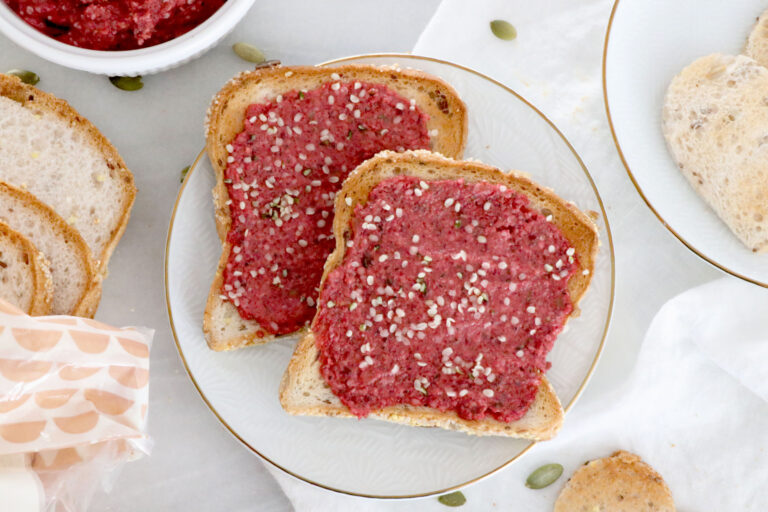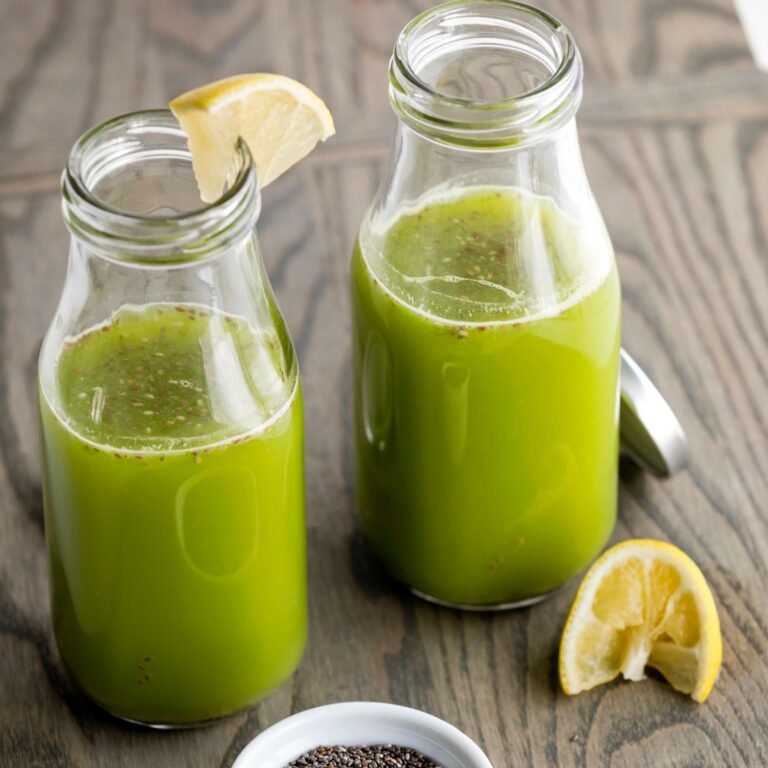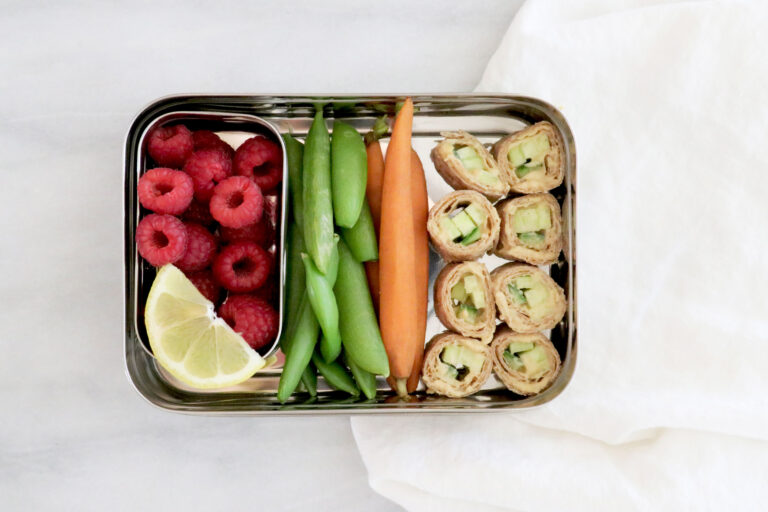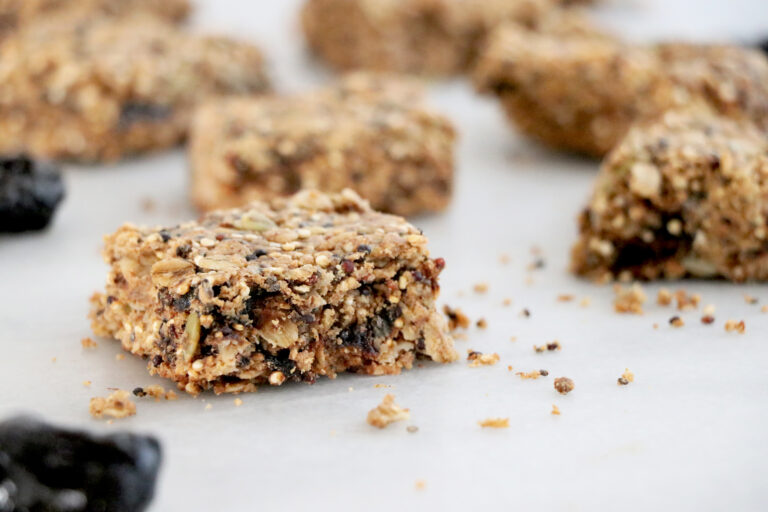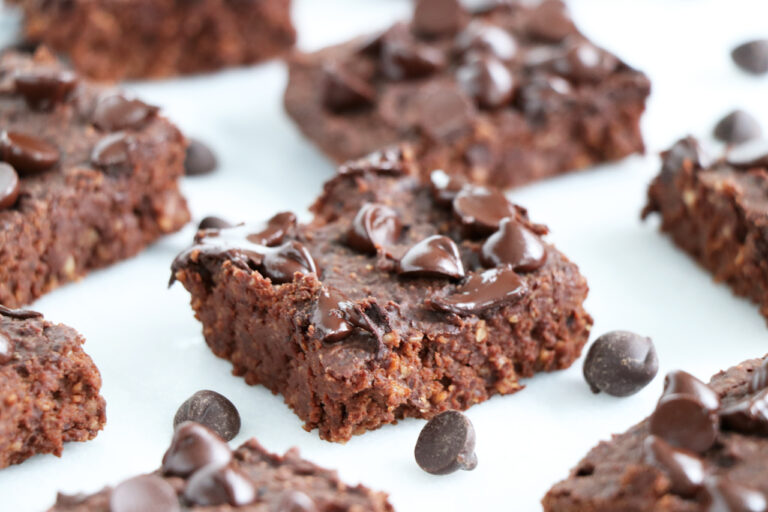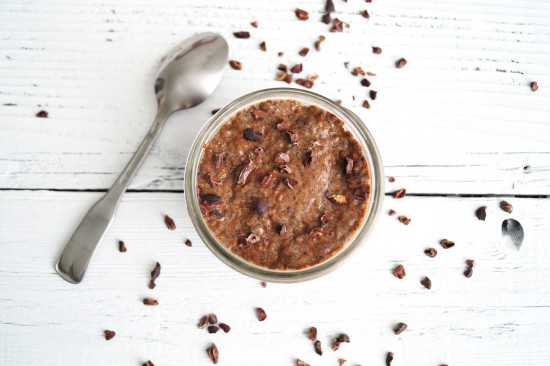Non-Dairy Milk Guide For Toddlers
There are many reasons why people are moving towards non-dairy milk. For some, they are lactose intolerant, are struggling with a food allergy, wish to consume foods that are better for the environment, their health and are cruelty-free! While it’s wonderful that there are SO many non-dairy milk options, it can also be overwhelming! If your toddler is ready for milk yet you wish to go dairy-free, picking a nutritionally balanced plant-based milk can be tricky! I hope after reading today’s blog post you feel empowered to grocery shop for an awesome plant-powered milk for you and your entire family!
Benefits of Non-Dairy Milk Versus Dairy
Dairy milk does contain calcium, protein, vitamin D, vitamin A, and potassium, but also may have hormones, pesticides and antibiotics. Research has shown that dairy milk may contribute to inflammation which may contribute to diet related diseases such as heart disease and cancer. Increased dairy intake has also been linked to acne and constipation.
Non-Dairy milk can be easier on digestion, is void of hormones and antibiotics and can be a healthier choice depending on the type you buy. I always recommend unsweetened, organic and look for brands that have higher protein, calcium and vitamin D. More on this later in the blog!
A common concern people have with a dairy-free diet is receiving adequate calcium and vitamin D. It is the position of the American Dietetic Association that, “appropriately planned vegetarian diets, including total vegetarian or vegan diets, are healthful, nutritionally adequate, and may provide health benefits in the prevention and treatment of certain diseases. Well-planned vegetarian diets are appropriate for individuals during all stages of the life cycle, including pregnancy, lactation, infancy, childhood, and adolescence, and for athletes. A vegetarian diet is defined as one that does not include meat (including fowl) or seafood, or products containing those foods.”
Following a varied, plant-based diet rich in nutrient dense foods can help ensure you are getting enough vitamins and minerals that your body needs to function properly. When it comes to plant-based milks however they are not created equal… so keep reading for our favorites to ensure your little is getting the proper nutrition he or she needs!
Calcium & Vitamin D Rich Plant-Based Foods
Calcium is essential for building strong bones, the clotting of blood, regulating the heart beat and helping with fluid balance within cells. Some calcium rich plant-based foods include sesame seeds, soy beans, white beans, collard greens, navy beans, mustard spinach, kale, cabbage, and many more!
Vitamin D aids calcium in the promotion of bone growth. Deficiencies in vitamin D have been linked to certain cancers, depression, weight gain and heart disease. Some vitamin D rich foods include oily fish and mushrooms. Vitamin D also comes from moderate sun exposure and supplementation. If you suspect you may have a vitamin D deficiency, take to your primary care physician about potential vitamin D supplementation.
What To Consider When Selecting A Non-Dairy Milk
Calories: Proper caloric intake is important for continued growth and overall wellness of your toddler. Toddler’s need around 1,000 calories per day, which is important to remember when looking at different milk options. Aim to give your toddler 2 servings of milk per day. With Ella I continue to offer her water and milk, and let her guide and regular her intake herself. Just like us, toddlers have days where they are more hungry and thirsty and days when they are not. The key is consistent exposure and offering.
Fat: Did you know that 30-40% of toddler’s intake should be from fat? Fats are important to store energy, insulate/protect our organs and store fat-soluble vitamins. Milk alternatives fat profiles can vary. In addition to the fat from non-dairy milk, aim to include fat from other dietary sources such as avocado, nut butter, yogurt, cooking or roasted veggies with coconut oil and more. Ella loves avocado and banana mashed together and peanut butter or almond butter toast as a few ideas!
Protein: On average, toddlers need 0.5 grams of protein per body weight each day. Protein is essential for the growth of muscles, cells and satiety. Below is a helpful nutritional comparison of non-dairy milks. In addition to milk additional sources of protein include beans, nut butter, hummus, oats, quinoa, hemp seeds, chia seeds as well as eggs, fish and poultry for those who eat predominately plant-based but are not 100% vegan.
Non-Dairy Milk Comparisons
Now it’s time to break down all of the different types of non-dairy milks and their nutritional content! When buying non-dairy milk, look for brands with few ingredients and always pick unsweetened to avoid unnecessary added sugar.
Average calories, protein and fat per 1 cup (8 ounce) serving:
Almond: 40 calories, 1-2 grams protein, 0-2 grams fat
Rice: 120 calories, 0 grams protein, 2 grams fat
Coconut: 50 calories, 0 grams protein, 5 grams fat
Oat: 120 calories, 3 grams protein, 5 grams fat
Hemp: 80 calories, 3 grams protein, 5 grams fat
Soy: 80 calories, 7 grams protein, 4 grams fat
Pea Protein: 100 calories, 8 grams protein, 4.5 grams fat
Best Non-Dairy Milk for Toddlers
Your toddler has reached the age to begin drinking milk and you’re wondering which one to choose?! Soy and pea protein are going to be your best options because these are the highest in protein. Protein is essential for your toddler and child’s brain development, hormones and building muscle. Some brands also fortify with vitamin D, calcium and B vitamins. Non-dairy milks such as almond, rice, oat or coconut contain little to no protein so they are not best for growing toddlers as a main milk choice. As mentioned above, remember to choose unsweetened and brands that contain few ingredients. One of our favorite options has been Ripple pea protein milk and we buy the unsweetened option.
Safety of Soy
There is a lot of debate around soy and whether or not it is safe to drink and eat, especially for females. Most recent research has indicated that soy is safe consumed in moderate dietary amounts. There is no long-term research on extreme high doses of soy food and its implications. However, research has concluded that long-term use of high dose soy supplements may increase the lining of the uterus causing it to thicken, which may lead to cancer. Soy foods themselves have not shown to cause these effects. A positive of Soy, it that is has actually been shown to potentially decrease your “bad” LDL cholesterol. Soy is also packed with protein – which is key for growing toddlers. When buying soy foods and soy milks, always look for organic since generic soy is one of the highest genetically modified crops. Our suggestion, go for Organic and if soy milk if your child’s go-to beverage make sure the rest of their diet is varied with different plant-based proteins (not more soy based foods) such as beans, nuts, grains, fruits and veggies.
Coconut, Macadamia Nut, Almond, Oat Milk & More…
While these milks are not suitable for toddlers, they are still wonderful options for adults! I love all of these milks to add to smoothies, coffee, tea, cereal and more!
For more Healthy Tips and Inspiration make sure to follow Healthy Grocery Girl on Instagram!
